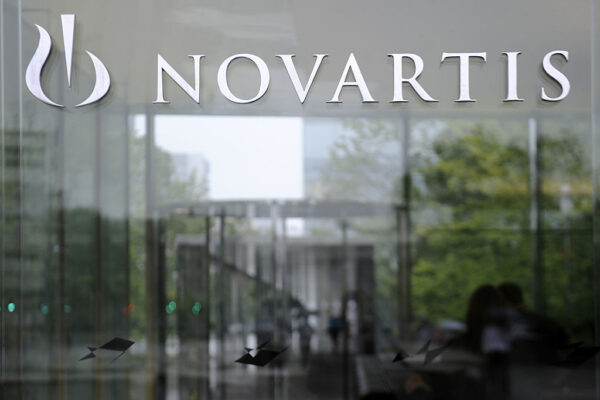
Novartis’s busy summer of dealmaking is continuing, and its latest deal is with a familiar face. The pharmaceutical giant is returning to current partner Monte Rosa Therapeutics to begin a new alliance focused on developing molecular degrader drugs for elusive targets in immune-mediated disease.
Specific disease targets were not disclosed. But the deal terms announced Monday call for Novartis to pay Monte Rosa $120 million up front to begin the new partnership.
Boston-based Monte Rosa develops drugs that leverage a cell’s built-in systems for disposing of old proteins as a way to eliminate proteins that cause disease. The biotech specializes in developing molecular glues, small molecules that induce the binding of a target protein to an enzyme that leads to it being marked for disposal. These molecular glues are applied to difficult-to-drug proteins that require a “molecular glue” to induce binding with that enzyme. Monte Rosa’s glues come from a platform technology, QuEEN, which uses artificial intelligence (AI ) and machine-learning (ML) techniques to discover and develop these small molecules.

The Power of One: Redefining Healthcare with an AI-Driven Unified Platform
In a landscape where complexity has long been the norm, the power of one lies not just in unification, but in intelligence and automation.
Under the agreement announced Monday, Novartis gains an exclusive license to an undisclosed Monte Rosa discovery-stage target as well as options to license two programs from Monte Rosa’s preclinical immunology portfolio. Monte Rosa will use QuEEN to discover and develop degraders for the licensed target as well as the optioned programs. Novartis will take over the programs to commence their clinical development.
“Our AI/ML-enabled QuEEN product engine continues to generate new insights and opportunities, delivering an expanding pipeline of programs directed against a breadth of historically undruggable immunology targets,” CEO Markus Warmuth said in a prepared statement. “This new collaboration allows us to expedite the development of certain of those programs with Novartis, leveraging their recognized development and commercialization capabilities.”
The new alliance is potentially broader than the one Novartis struck up with Monte Rosa nearly a year ago. Last October, Novartis paid $150 million up front to secure global rights to MRT-6160. This Monte Rosa molecular glue degrader is designed to target VAV1, a protein that plays a role in activating T cells and B cells, immune cells whose excessive activity drives a range of autoimmune disorders. Monte Rosa said this program is proceeding to multiple Phase 2 tests in immune-mediated diseases.
Beyond the upfront payment to Monte Rosa, Novartis will also make additional payments of up to $60 million to maintain the options, according to a regulatory filing. Preclinical milestone payments and option exercise payments could reach up to $180 million. Additional milestone payments could bring the total payout to Monte Rosa to as much as $5.7 billion. The biotech would also be eligible for royalties from sales of approved products resulting from the alliance.
Novartis is Monte Rosa’s second big pharma partner. In 2023, the biotech inked an alliance with Roche focused on developing molecular glue degraders for cancer or neurological disease targets selected by the Swiss pharma giant. Monte Rosa received $50 million up front. Specific targets remain undisclosed for this research, which is still in the discovery stage.
The Novartis and Roche alliances do not include disclosed assets from Monte Rosa’s internal pipeline. The biotech’s most advanced wholly owned program is MRT-2359, a molecular glue degrader in Phase 1/2 testing for castration-resistant prostate cancer. Warmuth said the new Novartis collaboration strengthens his company’s financial position, enabling it to progress its wholly owned programs that include undisclosed targets for autoimmune conditions. As of the end of June, Monte Rosa reported its cash position of $295.5 million was sufficient to fund operations in to 2028. The company said Monday it will update its cash runway projections when it reports third quarter 2025 financial results.
Meanwhile, Novartis has been busy striking deals that expand and diversify its pipeline. This year to date, the pharma giant has reached deals to acquire Tourmaline Bio and its Phase 3-ready drug for cardiovascular disease, license global rights to an Arrowhead Pharmaceuticals drug in development for Parkinson’s disease, acquire Regulus Therapeutics and its Phase 3-ready rare kidney disease drug, and purchase Anthos Therapeutics for its anticoagulant in late-stage clinical development.
Photo: Adrian Moser/Bloomberg, via Getty Images








